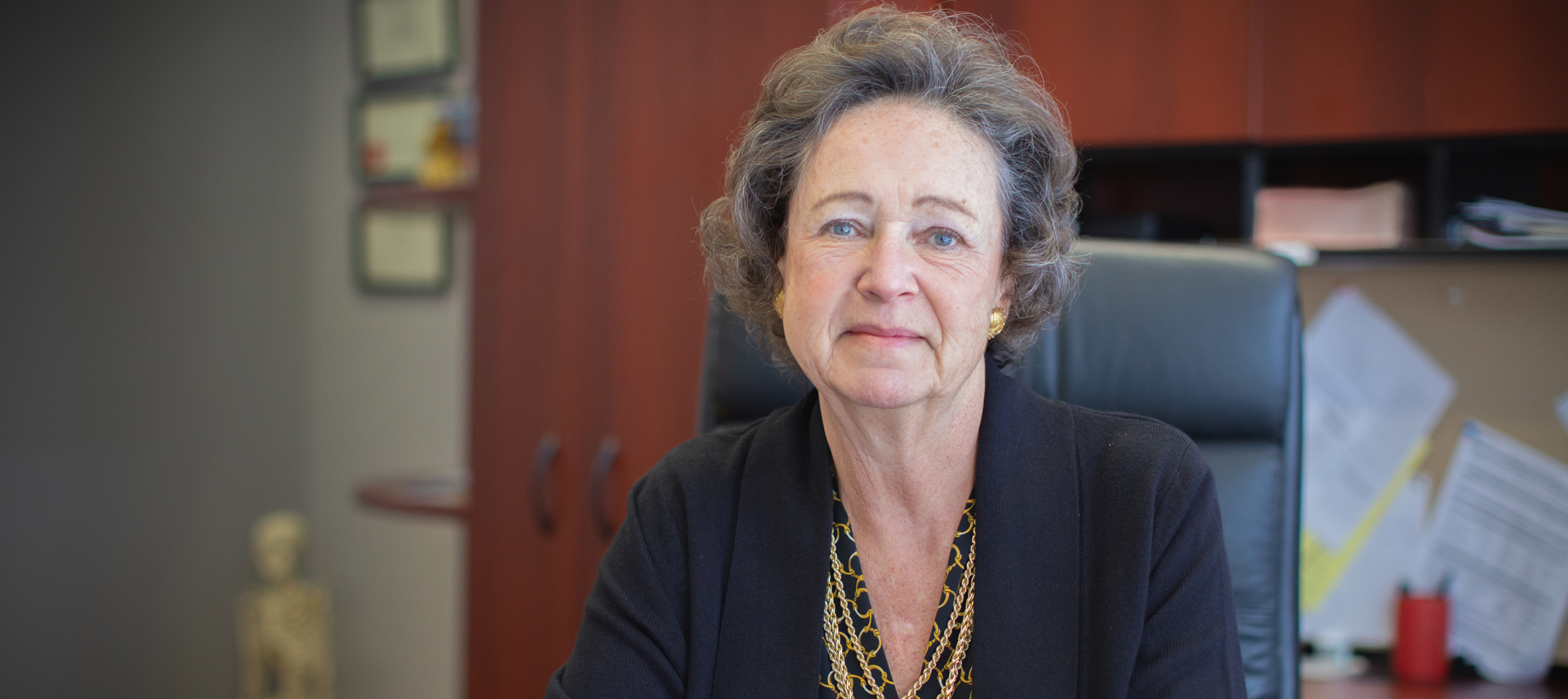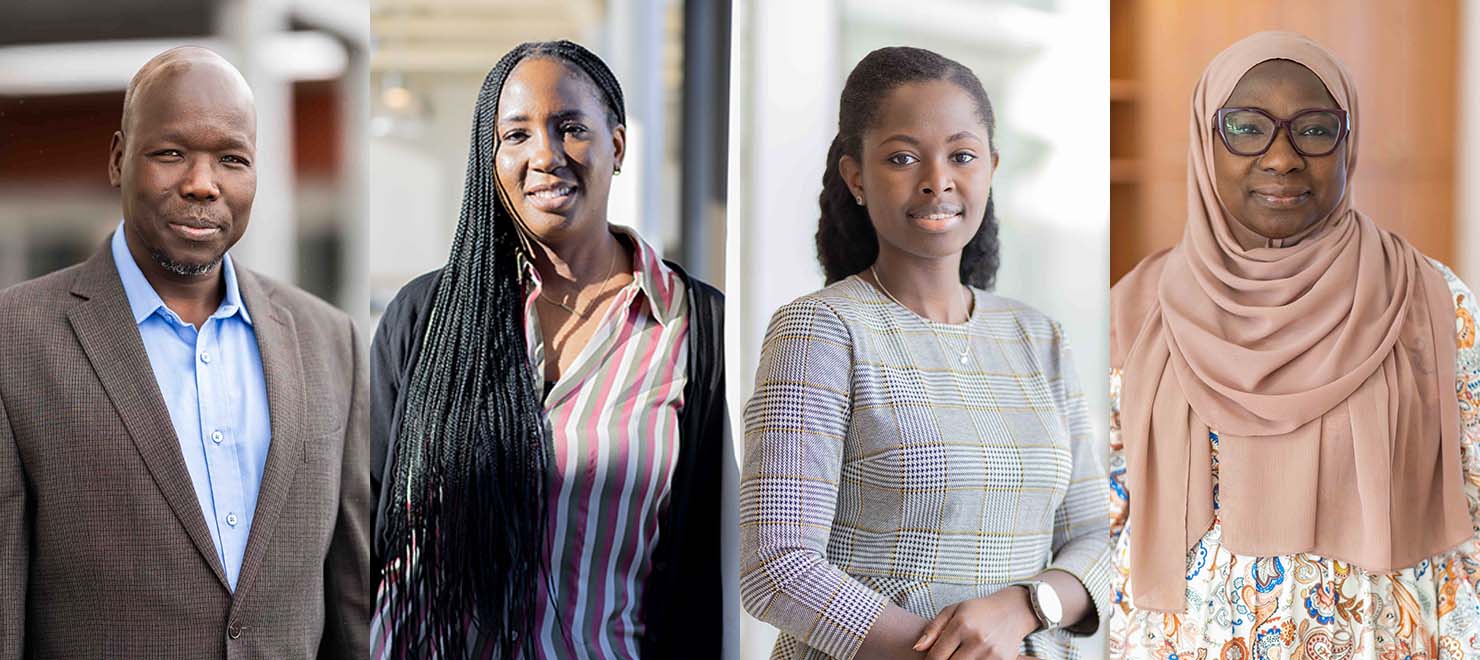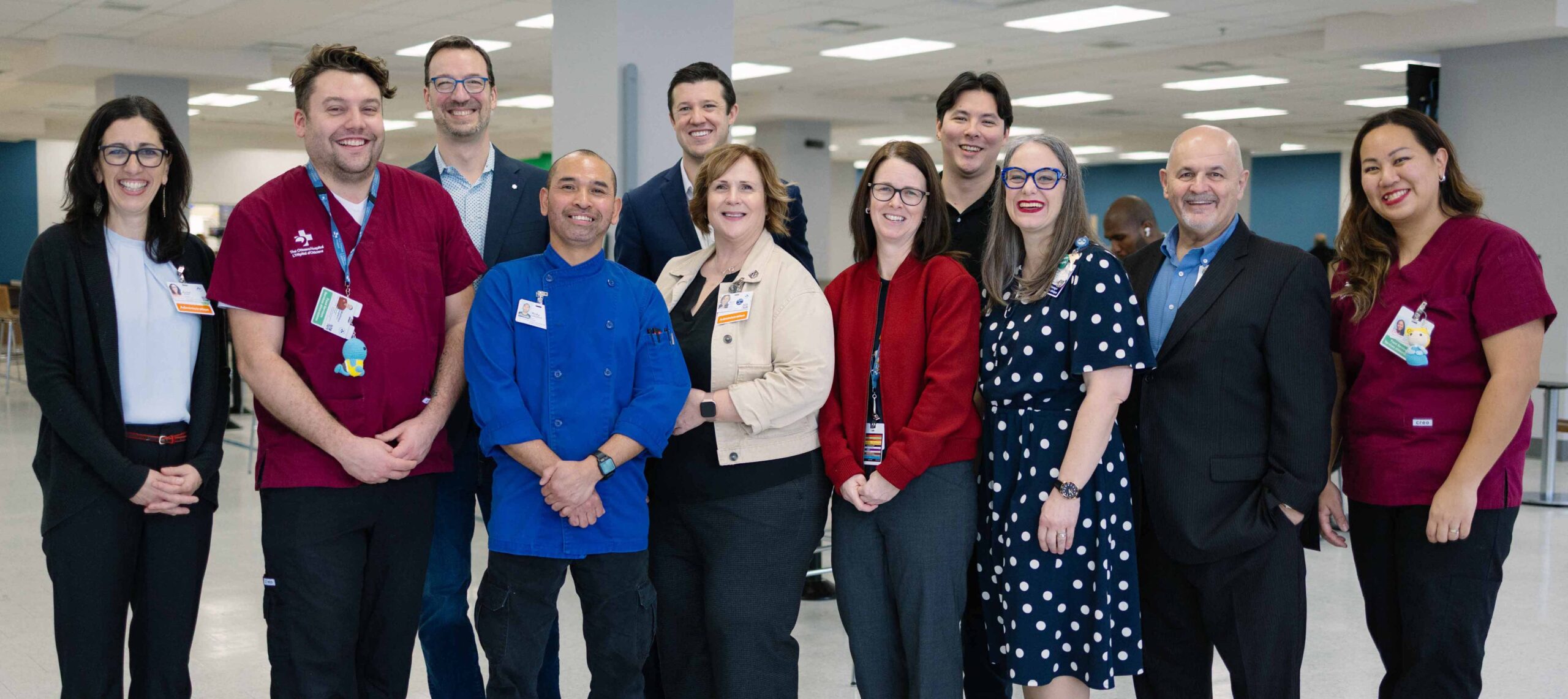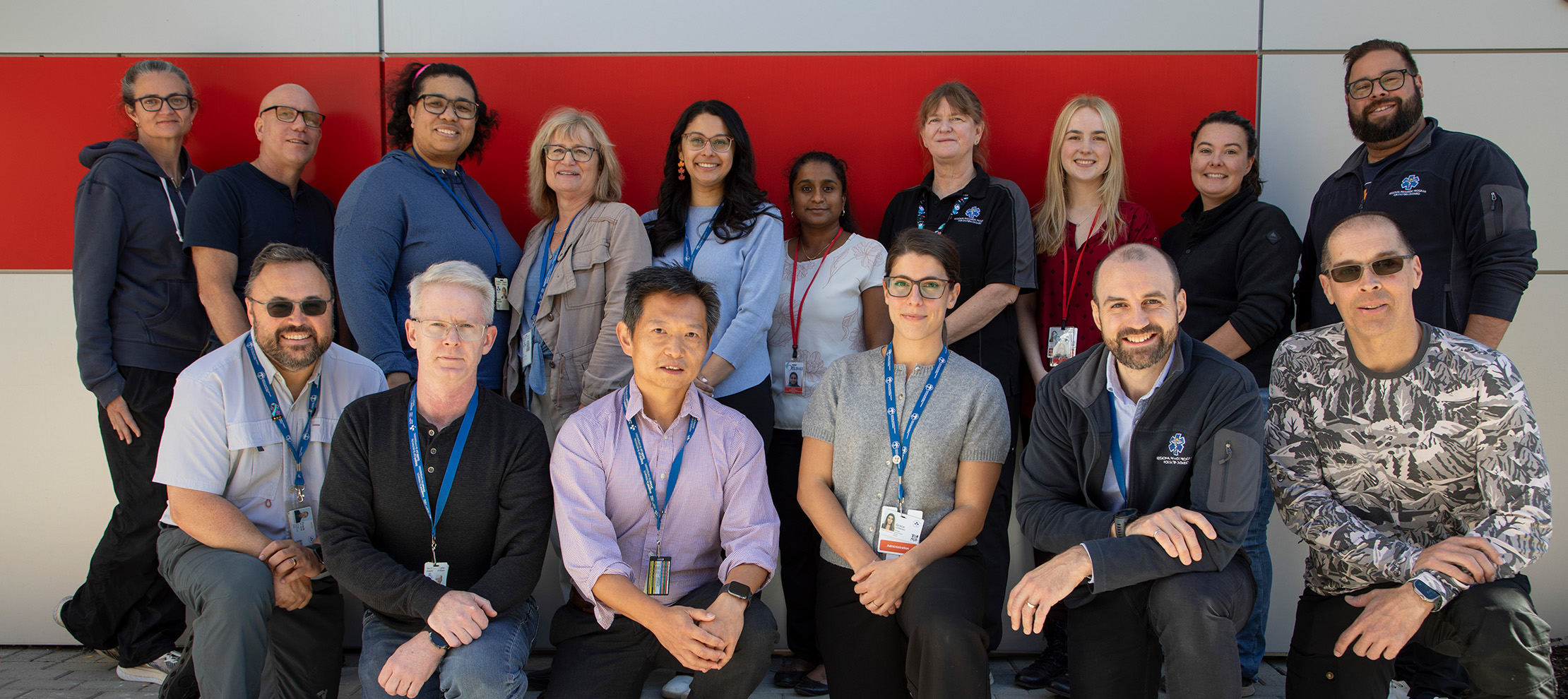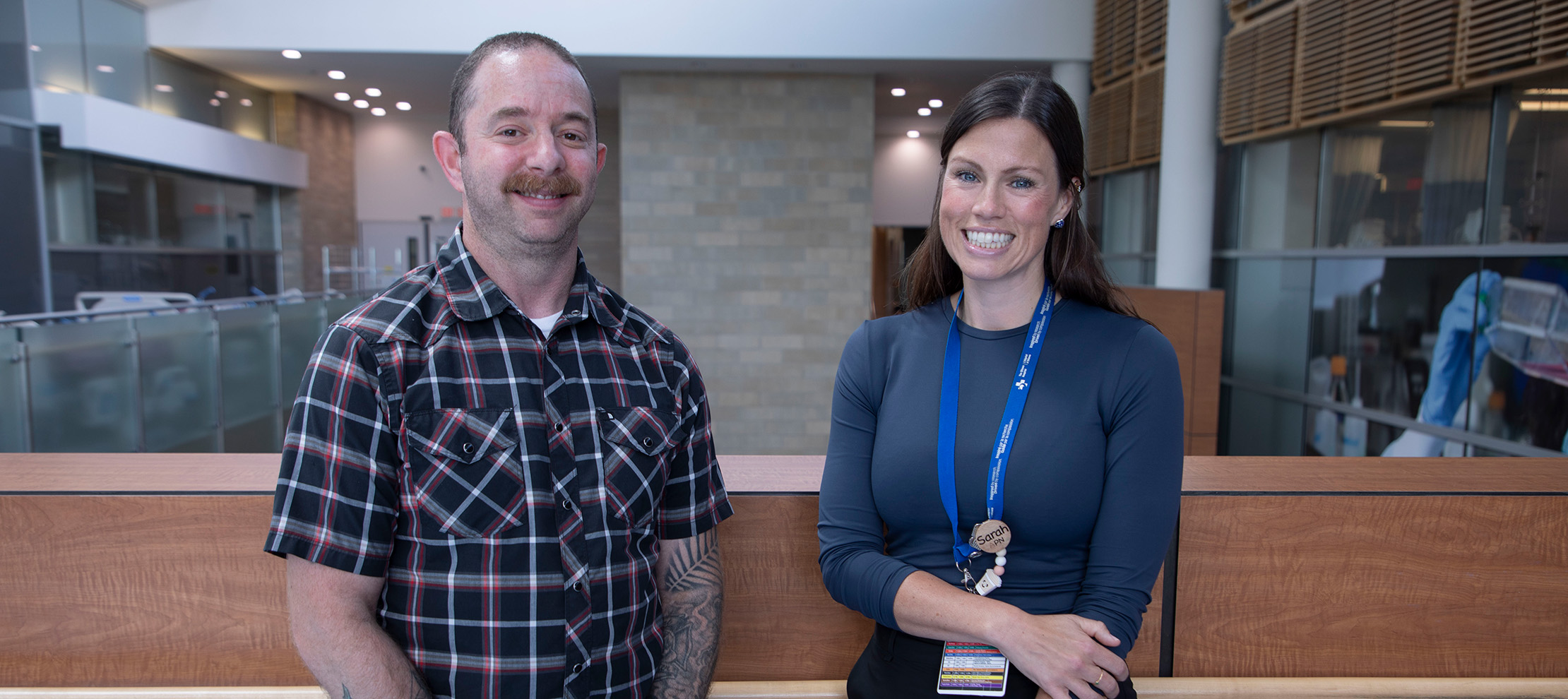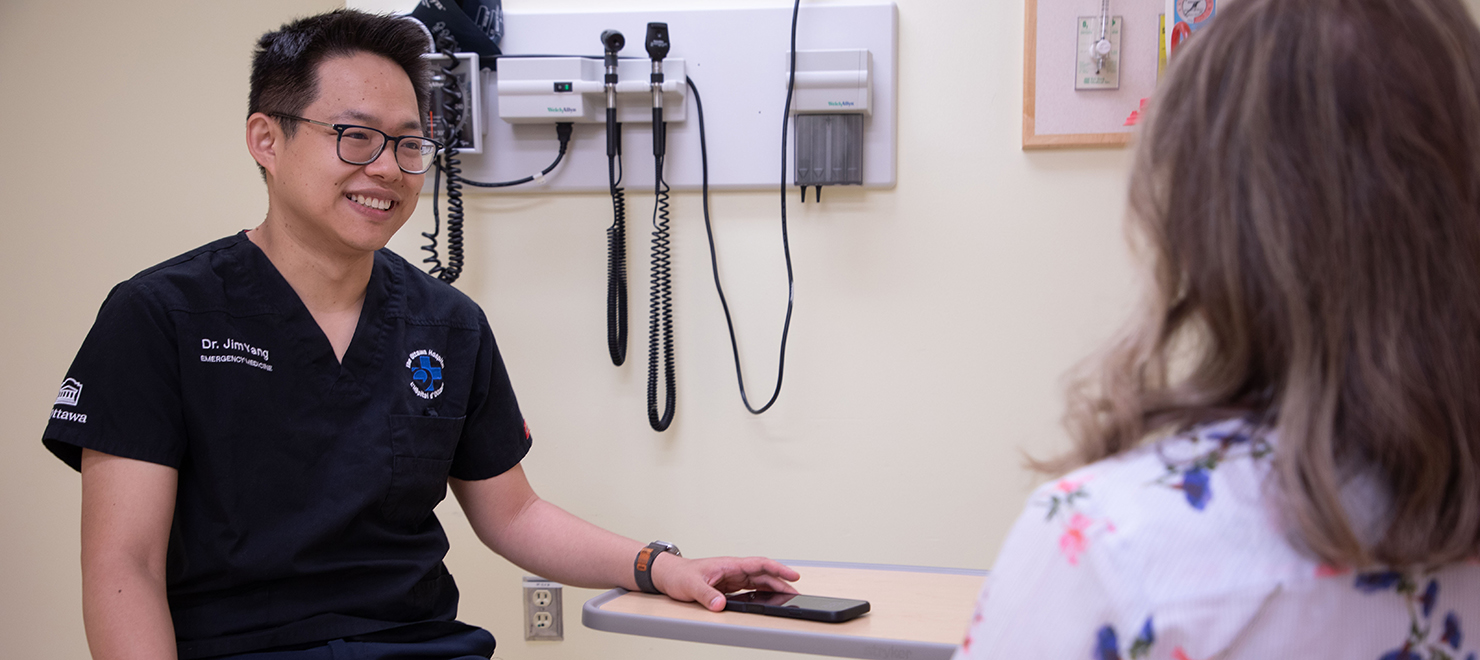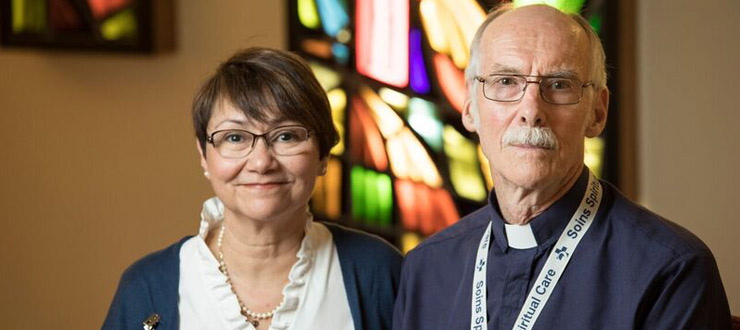
Chaplains Linda Miller (left) and Rev. Tom Granger were part of an interprofessional team that developed the Emergency Spiritual Care Assistance Team (ESCAT) Guide, which helps ensure that spiritual and emotional support does not get missed during a disaster or Code Orange.
In any disaster or Code Orange, medical attention for victims is crucial. But they, along with their families and loved ones, also need spiritual and emotional support. That’s what inspired The Ottawa Hospital to develop the Emergency Spiritual Care Assistance Team (ESCAT) Guide – the first of its kind in North America.
“In the spiritual care realm, this is without precedent,” said Geneviève Côté, Professional Practice Manager for Psychosocial Services. “We are asked for it regularly and expect quite a bit of uptake now that it is in a nice, published format.”
The team trains local faith group members in disaster response and disaster spiritual care so that they can work alongside hospital chaplains during a Code Orange. This program was then outlined in the ESCAT Guide, which teaches other hospitals and facilities how to create their own ESCAT program based on their resources and stakeholders.
ESCAT provides a spiritual care component to The Ottawa Hospital’s emergency preparedness plan. With ESCAT, the hospital can better provide comprehensive, compassionate care to those affected by a tragedy.
For every one casualty in a disaster, it’s estimated there are hundreds of people who need psychological and spiritual help after the event. By helping to provide spiritual and emotional support to victims, families, loved ones and staff members, ESCAT ensures that this key component to world-class care does not get missed.
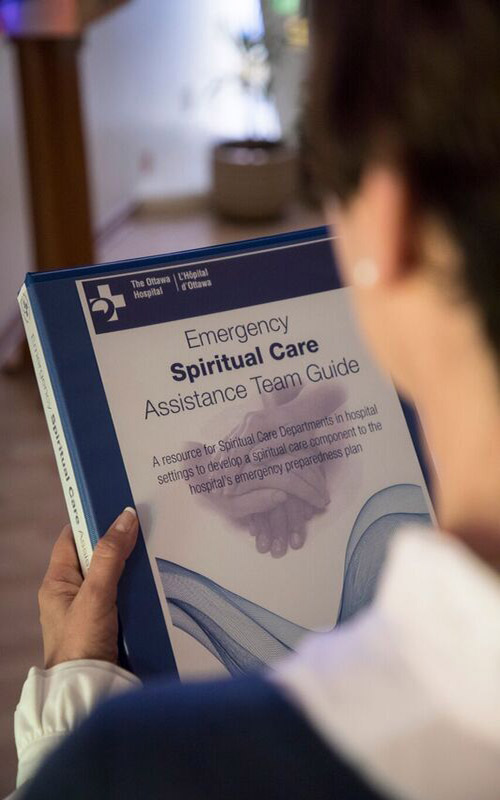
The ESCAT Guide outlines the structure, processes and functions of a disaster spiritual care team pre-disaster, during disaster and post-disaster. This includes information about administrative committees, volunteer recruiting and screening, training workshops, and communication for before, during and after a disaster.
Côté first experienced the need for ESCAT during the OC Transpo-VIA Rail bus-train crash in 2013.
“ESCAT members arrived to provide spiritual and emotional help for families and loved ones of those involved,” said Côté. “During difficult times, individuals need health-care professionals to speak with about the kinds of emotions they’re experiencing. With this guide, we are better prepared to provide that to them in the most comprehensive way possible.”
At the time of the crash, TOH staff chaplains worked with representatives from all faiths within the community, to ensure that resources were available for patients of all spiritual backgrounds and beliefs.
Staff chaplains worked with community leaders to develop the ESCAT Guide. Since the guide’s release in April, The Ottawa Hospital has received requests from health-care organizations all over North America, each of them looking to implement ESCAT in their own hospital. The team has also been invited to present a workshop on it at the Association of Professional Chaplains Conference in Houston, Texas.
If you would like to learn more about ESCAT or the ESCAT Guide, contact escat@toh.on.ca.

Support patient care and research at
The Ottawa Hospital
You might also like…
Dr. Kathleen Gartke appointed to the Order of Ontario
The Ottawa Hospital is proud to share that Dr. Kathleen Gartke has recently been appointed to the Order of Ontario, the province’s highest honour. A pioneering orthopedic surgeon, Dr. Gartke has been recognized for advancing patient care and women’s leadership in medicine.
Black History Month: A time to honour, celebrate and listen
Four members of The Ottawa Hospital’s Black community reflect on what this important month means to them.
Reimagining hospital food: How The Ottawa Hospital is transforming the patient mealtime experience
In 2024, we launched the trial phase of our Patient Food Transformation Project. The goal was to see if it is possible to improve the overall nutrition and quality of food we serve to our patients, while increasing bedside hospitality, enhancing the overall sustainability of our food services, and not increasing operational costs. Our trial wrapped in 2025 with very promising results.
How we’re helping over 1,400 paramedics enhance patient care and safety
The Regional Paramedic Program for Eastern Ontario (RPPEO) is on a mission to enhance what happens after you dial 911. Here are three new ways this team is helping paramedics deliver better, safer care to their patients.
New program fills gap in care for teens and young adults with cancer
For young people, a cancer diagnosis can disrupt their education, careers, relationships and family-building goals. Our Adolescent and Young Adult (AYA) Cancer Program supports AYAs on their cancer journey, complementing the care provided by their care team.
Less time charting means more time with patients: How The Ottawa Hospital is using AI to support patient care
“I’m seeing and treating more patients.” Find out how DAX Copilot, a powerful AI assistant, is helping our physicians cut down on paperwork, improve their own well-being and spend more time with patients.


 To reset, hold the Ctrl key, then press 0.
To reset, hold the Ctrl key, then press 0.
